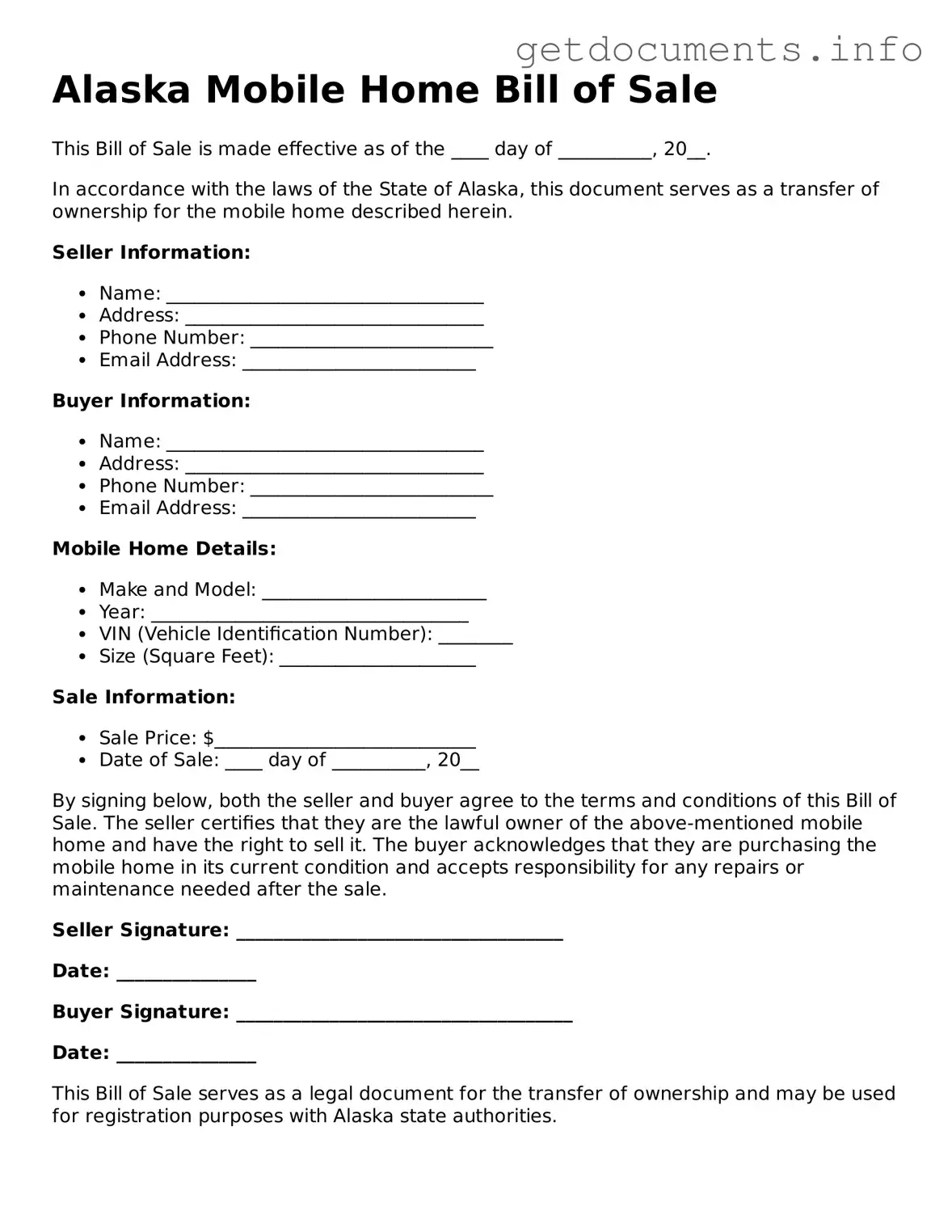Free Mobile Home Bill of Sale Template for Alaska
The Alaska Mobile Home Bill of Sale form is a legal document that facilitates the transfer of ownership for mobile homes in the state of Alaska. This form serves as proof of the sale, detailing essential information about the buyer, seller, and the mobile home itself. Ensuring that this form is accurately completed is crucial for both parties involved in the transaction.
To make the process easier, fill out the form by clicking the button below.
Access Mobile Home Bill of Sale Editor

Free Mobile Home Bill of Sale Template for Alaska
Access Mobile Home Bill of Sale Editor
Got places to be? Complete the form fast
Fill out Mobile Home Bill of Sale online and avoid printing or scanning.
Access Mobile Home Bill of Sale Editor
or
⇩ PDF File
